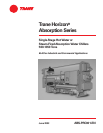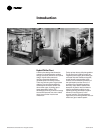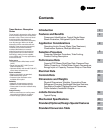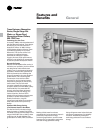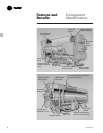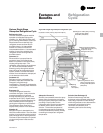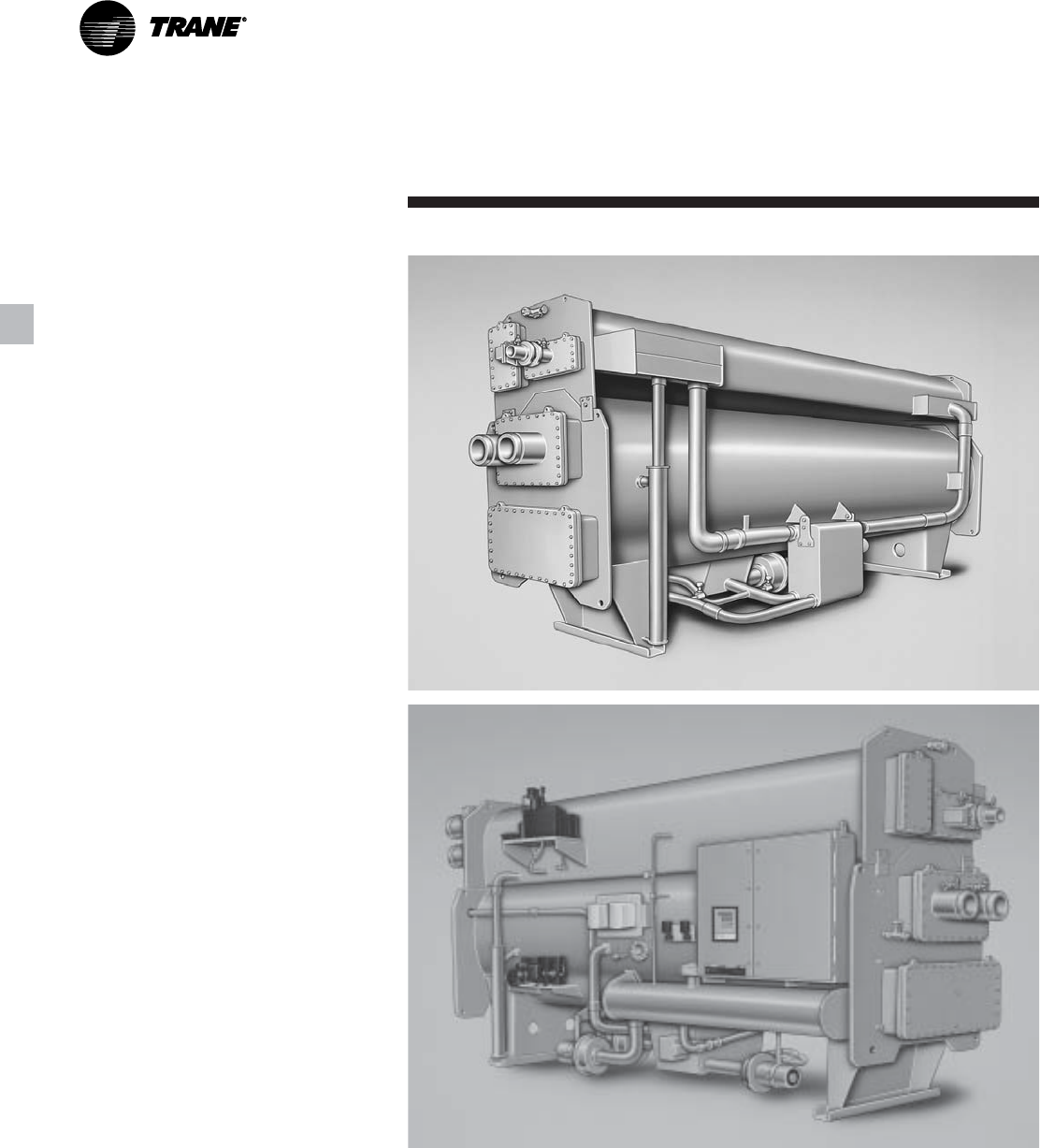
ABS-PRC001-EN4
Features and
Benefits
General
Trane Horizon
®
Absorption
Series, Single-Stage Hot
Water- or Steam-Fired
Absorption Water Chillers,
500-1350 Tons
Technology You Can Trust
In the early 1990’s, with the assistance of
the Gas Research Institute, Trane began
developing an innovative series of
absorption chillers. In 1995, Horizon
chillers began shipping from the Trane
manufacturing facility in La Crosse,
Wisconsin. The Horizon chiller is so
advanced, it redefined industry
standards for absorption system
integrity. Horizon chiller performance,
efficiency and reliability far exceed that
of past and present absorption chillers.
Dynamic By Design
Because uninterrupted chiller service is
critical to your operation, Horizon chillers
are designed to make chilled water
reliably, even in the harshest industrial
application. Water-tower systems and
load requirements can challenge the
long-term operation of many standard-
grade chillers. The industrial-grade
construction of the Horizon chiller
accounts for varying load and water-
temperature changes, as well as dirty
tower water. They are built with
corrosive-resistant alloy metals, and
precision welded in an ISO 9001 quality-
certified facility. Only extended-life
pumps, valves and water boxes are
manufactured into their design. For
further dynamics, Horizon UCP2
adaptive microprocessor controls react
precisely to system diversification.
Quality construction, long-life
components and adaptive controls are
what make the Horizon dynamic by
design.
Operates With Energy-Saving,
Low-Pressure Steam or Hot Water
The Horizon family includes a single-
stage, hot water- or steam-fired chiller
line. Able to produce chilled water in the
range of 40 to 60°F [4.4 to 15.6°C], these
machines use 12 psig [0.83 bar] low-
grade steam or 270°F [132°C] hot water.
Making chilled water from these
comparatively low-temperature inputs is
particularly important for energy
conserving applications, such as waste-
heat recovery, co-generation equipment
and solar-energy-powered cooling.
Using refrigerant water helps eliminate
refrigerant management or availability
concerns. Additionally, absorption
technology reduces the use of electric
energy.



